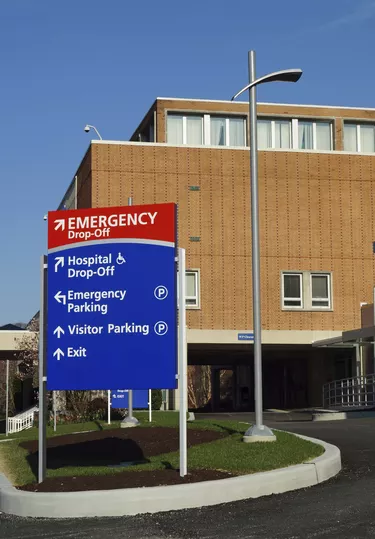
If you have a medical emergency that sends you to the hospital, medical professionals are obligated to treat you, regardless of your insurance situation. But that won't stop you from getting a bill later. Emergency Medicaid assistance is a program specifically designed for undocumented immigrants to get the medical help they need, while U.S. residents can get help by applying and requesting retroactive assistance. Either way, you'll apply through your state's Medicare office.
Apply for Emergency Medicaid
Video of the Day
Medicaid is a state-run program, but it's designed to help undocumented immigrants who are considered low income. Those who are pregnant or qualify as disabled may also be approved. You'll be asked for information on your income and whether you're a state resident as part of the application process.
Video of the Day
You can apply for emergency Medicaid by phone, in person or online. Each state has a Medicaid office with its own website and information on applying. The hospital or clinic should be able to get you started with the application process or, at the very least, give you information on what you'll need to do to apply. You'll usually need to supply pay stubs, bank statements, identification and a utility bill.
Preapproval for Emergency Medicaid
U.S. natives and legal immigrants can apply for Medicaid on your state's Medicaid website, but they have up to 45 days to process your application – 90 days if they have to make a determination on your disability. There can be delays due to missing information, as well, which can become a problem if you have an emergency. Undocumented immigrants don't qualify for Medicaid assistance.
Emergency Medicaid fast tracks benefits for undocumented immigrants in response to a recent medical event. In New York, you can apply in advance for preapproval for this benefit, which will ensure benefits for emergencies are in place for 12 months. However, preapproval isn't allowed in Connecticut. Check your own state's options if you're interested in preapproval.
Apply for Retroactive Assistance
If you're a U.S. resident, you may still be able to get help with your emergency medical bills through Medicaid. To do this, you'll need approval within 90 days of the medical expense. Since the approval process can take 45 to 90 days, that means you'll need to submit your application as soon as possible.
Even if you're approved for Medicaid moving forward, you won't necessarily see your emergency visit expenses covered. Medicaid looks at whether you would have been approved for coverage at the time of the incident to make that determination. If, for instance, your income dropped significantly after the emergency room visit, Medicaid may approve your application but deny retroactive assistance.
Emergency Medicaid and Immigration Status
The emergency Medicaid program is designed to help undocumented immigrants get the healthcare they need without repercussions. In other words, your request won't be reported to U.S. Immigration and Customs Enforcement. It also won't get in the way of your application for legal status.
Emergency assistance will only cover the costs associated with your emergency. If you're an undocumented immigrant, you can check into your city's public hospital system or community health centers for ongoing healthcare or treatment of chronic conditions.
Medicaid Eligibility for Resident Immigrants
Once you have your green card, you can apply for full Medicaid coverage after five years of residency. However, in some states, there are special statutes allowing officials to approve coverage for certain family members without a waiting period. That typically includes children and those who are pregnant.
To get Medicaid, you'll go through the same qualification process as other citizens, including demonstrating proof of income and determining disability eligibility, if applicable. As a legal resident, you're also eligible to apply for benefits through the Affordable Care Act.